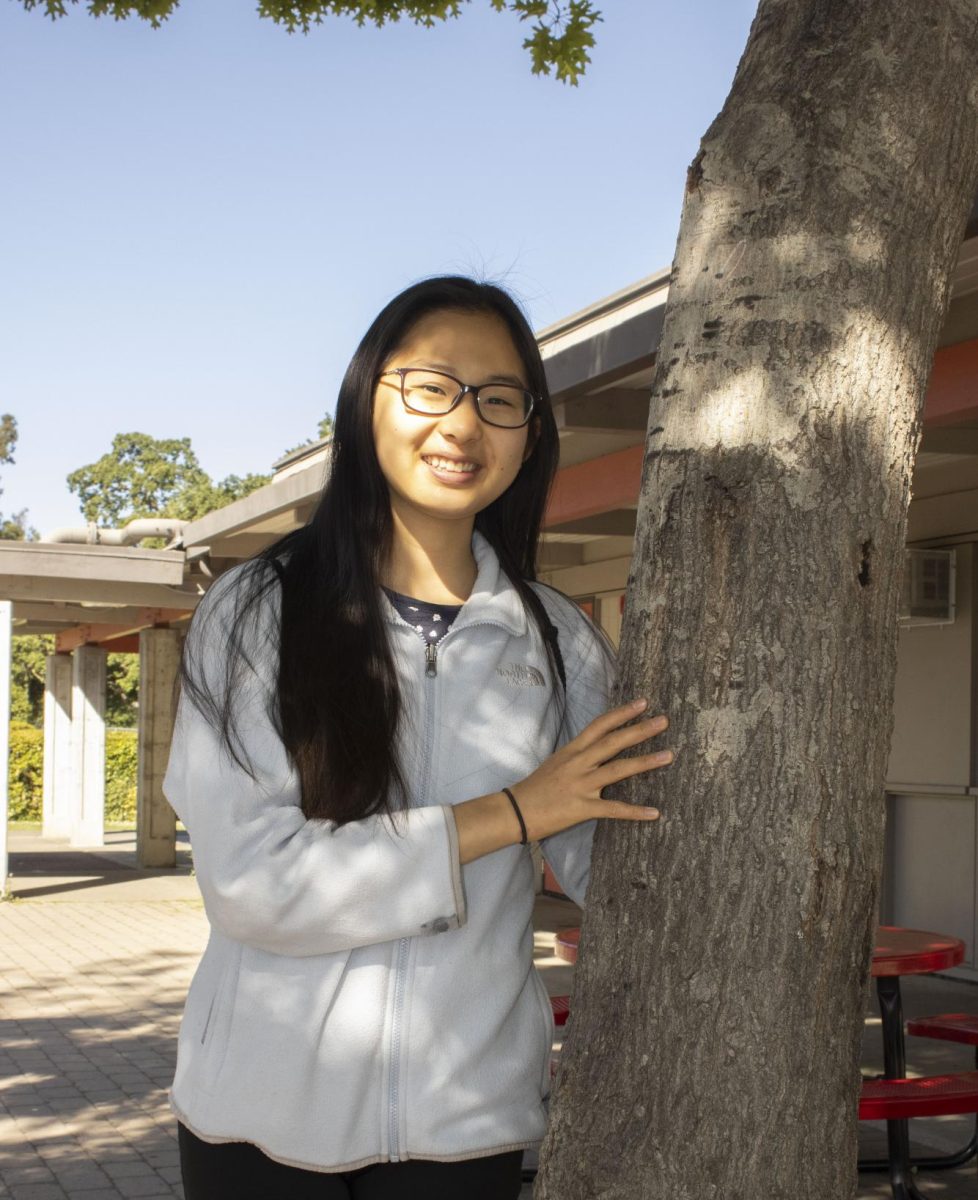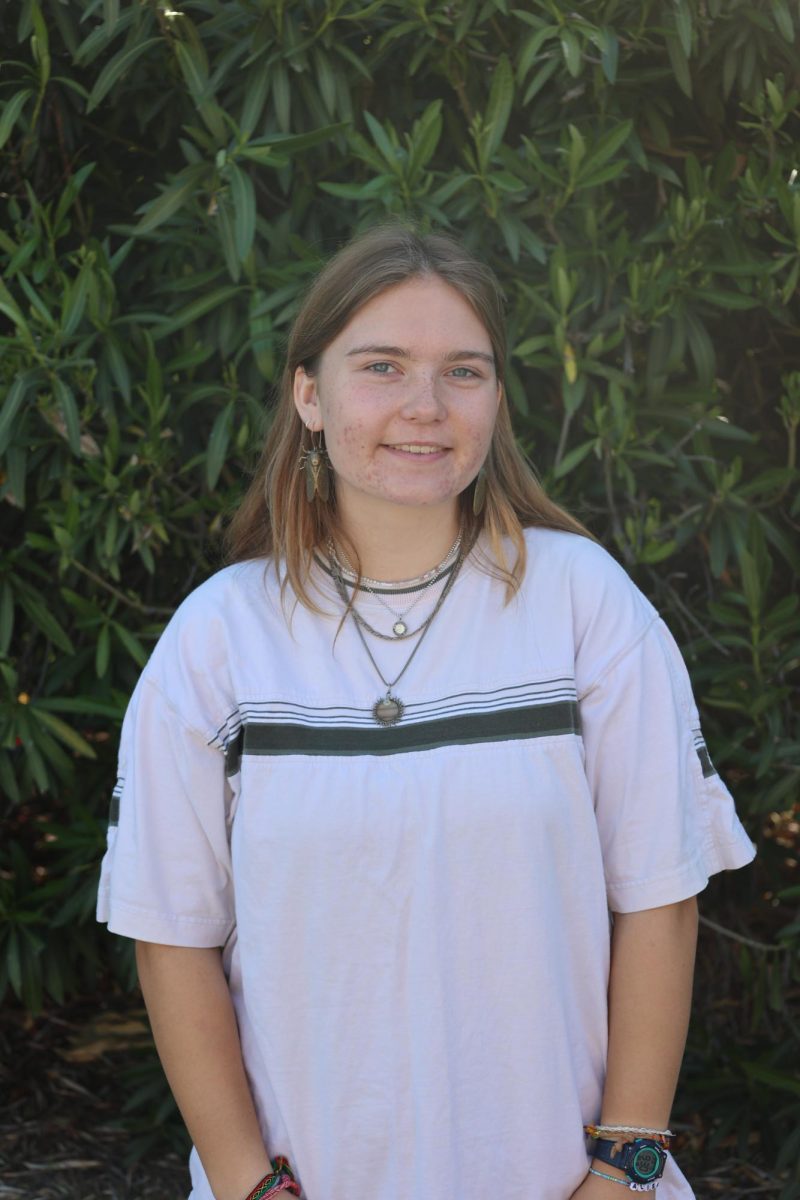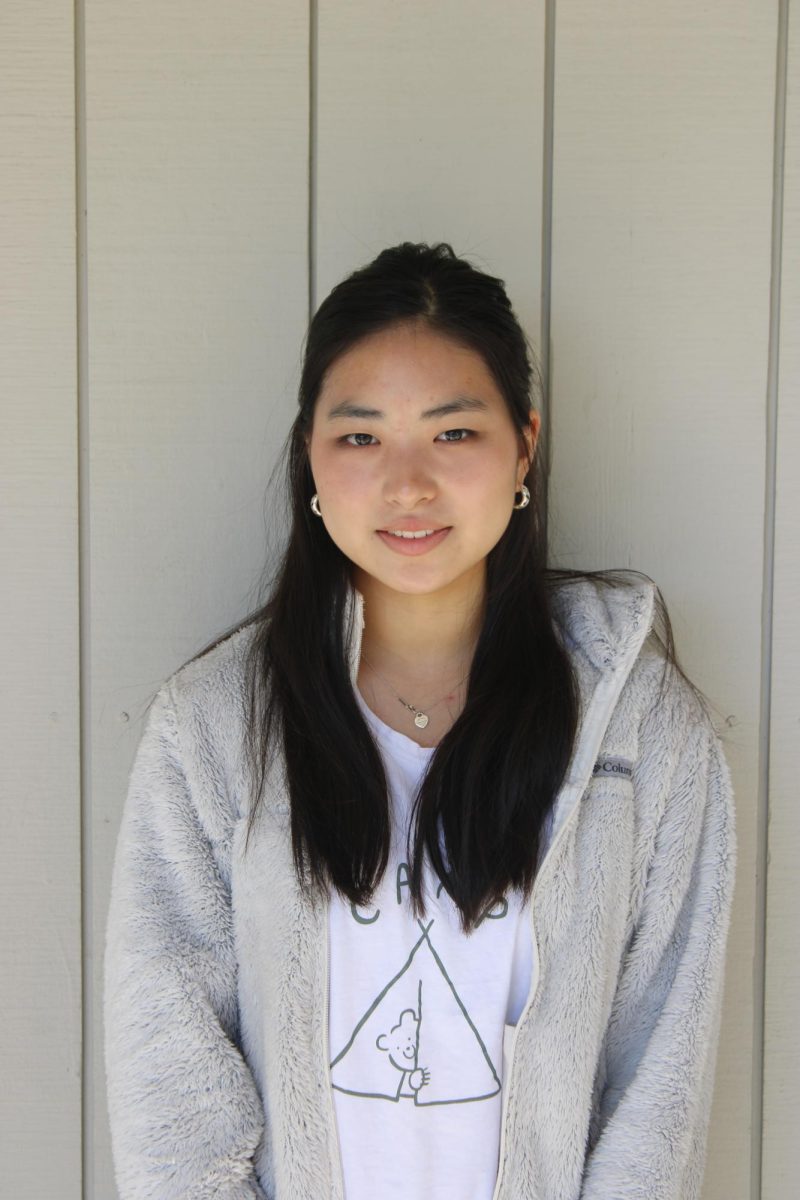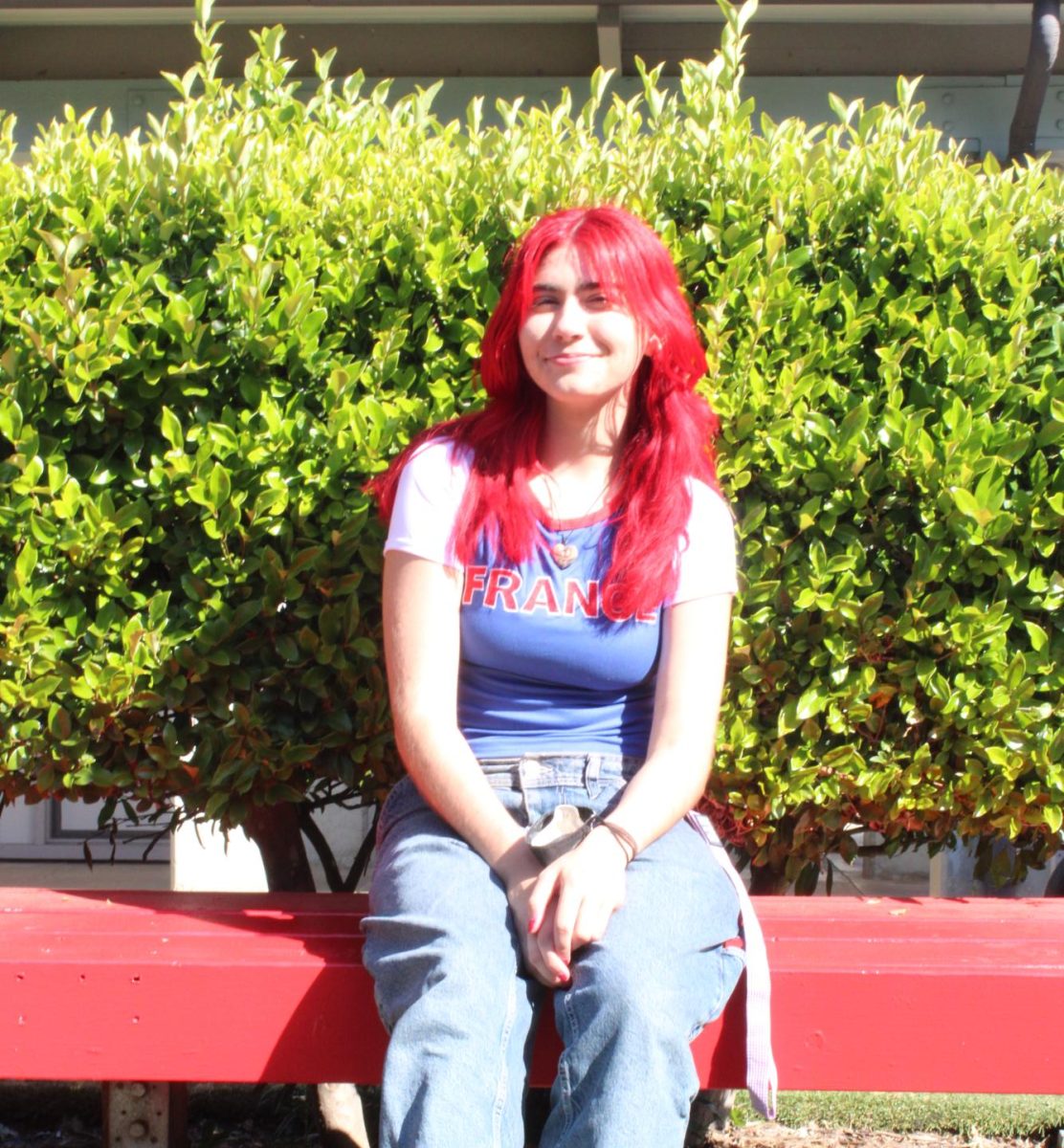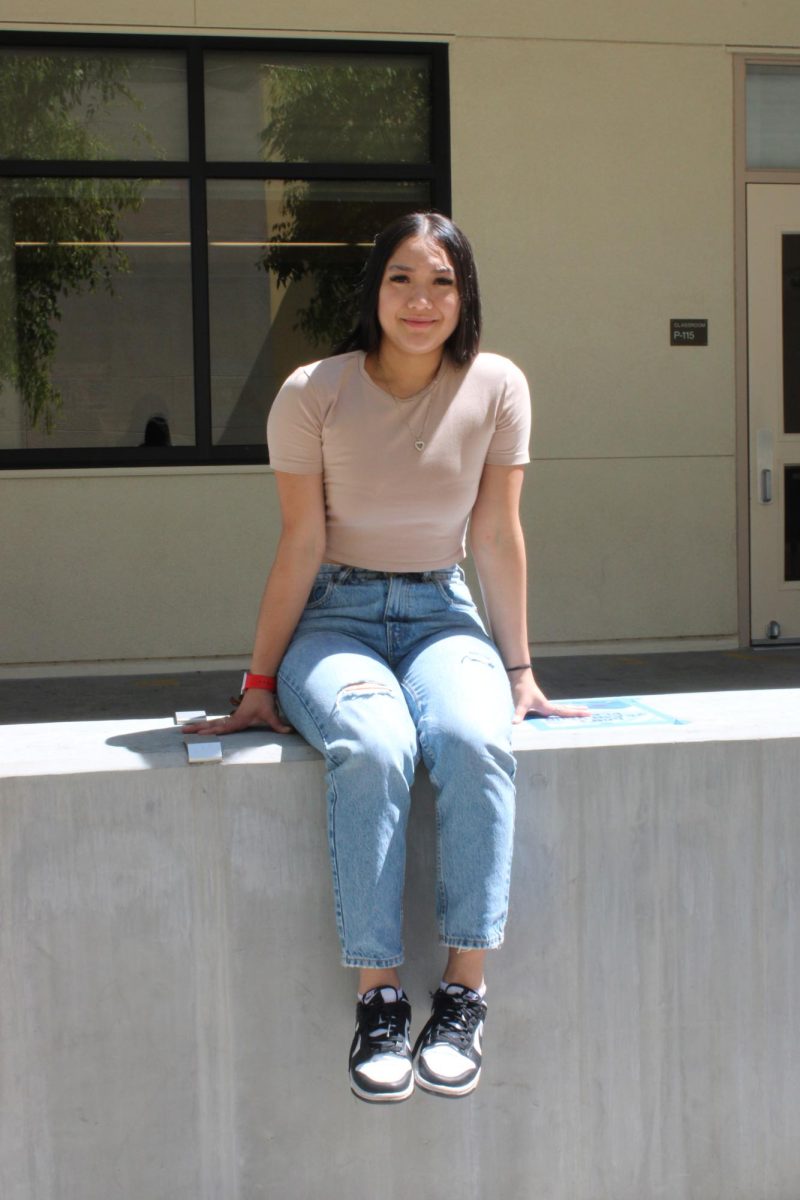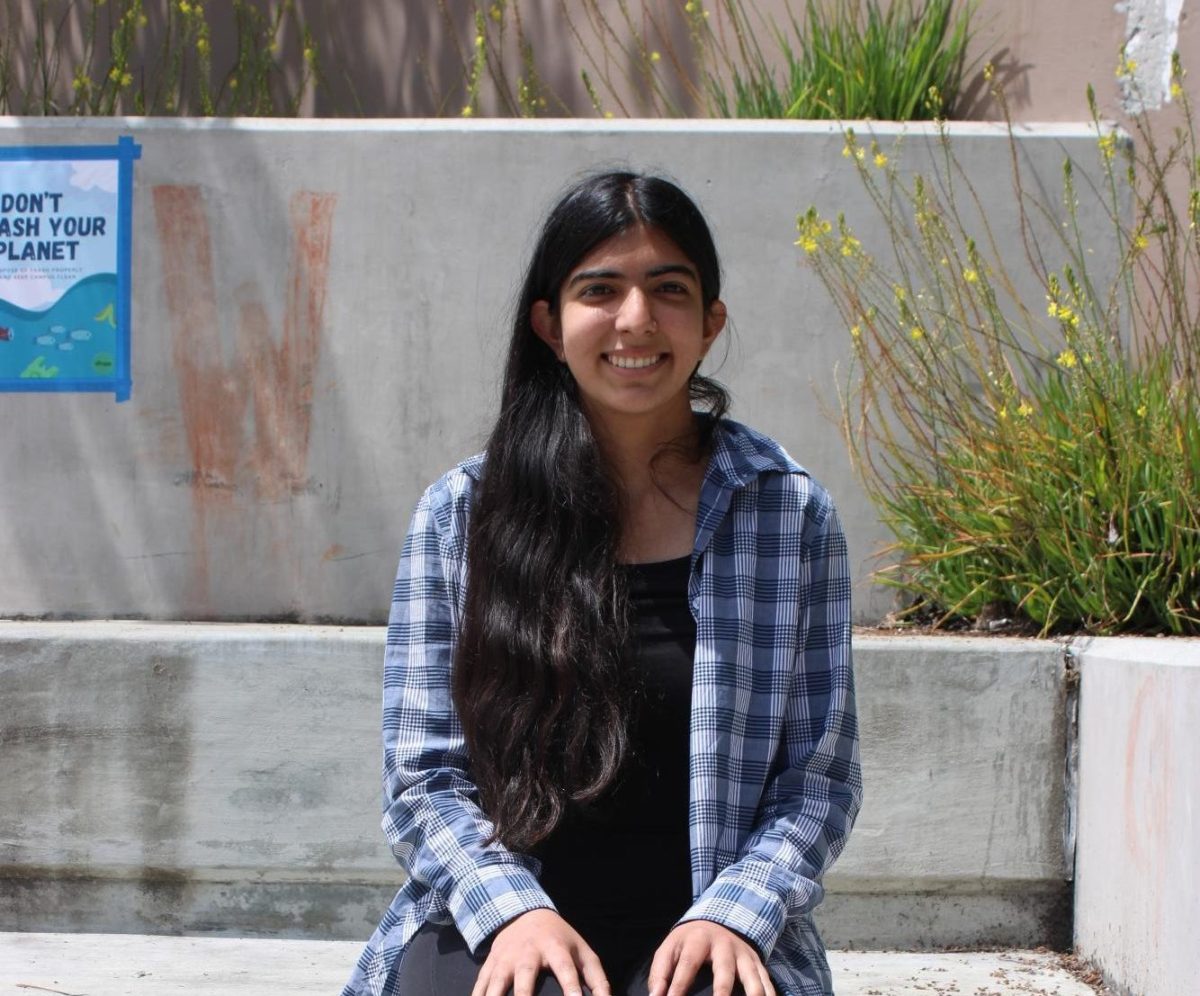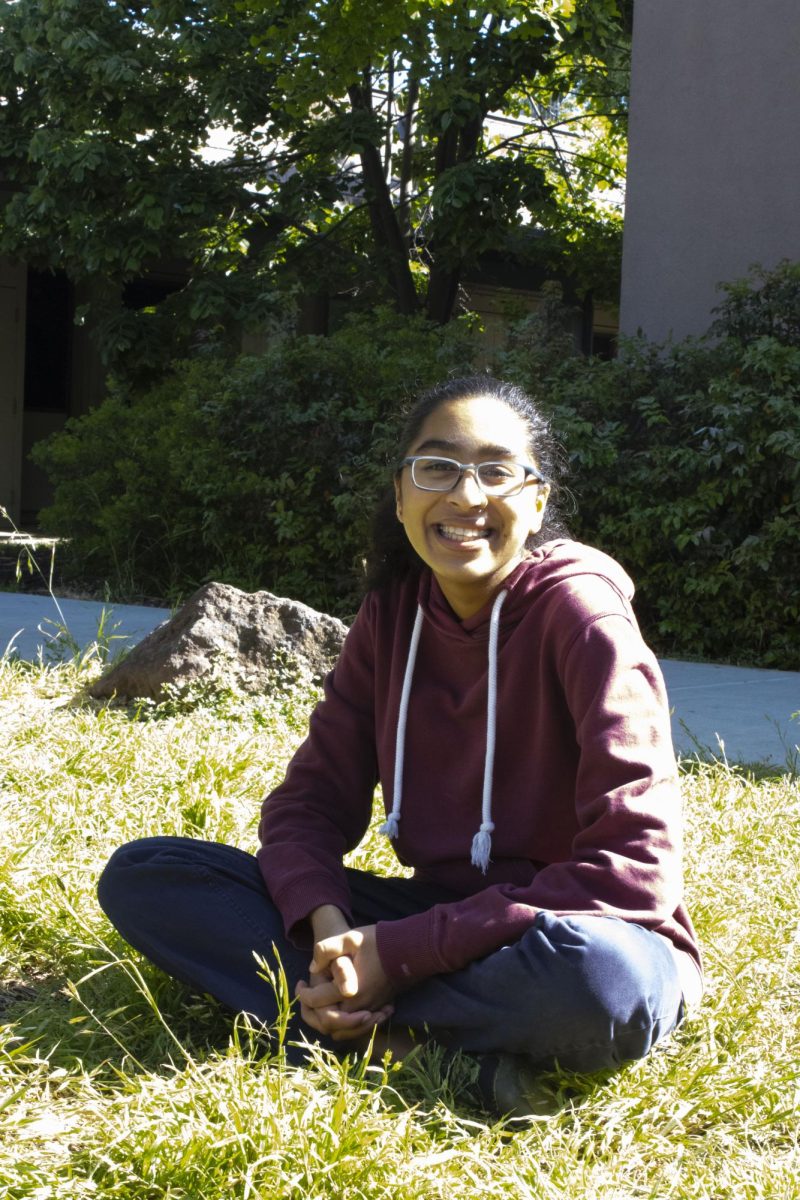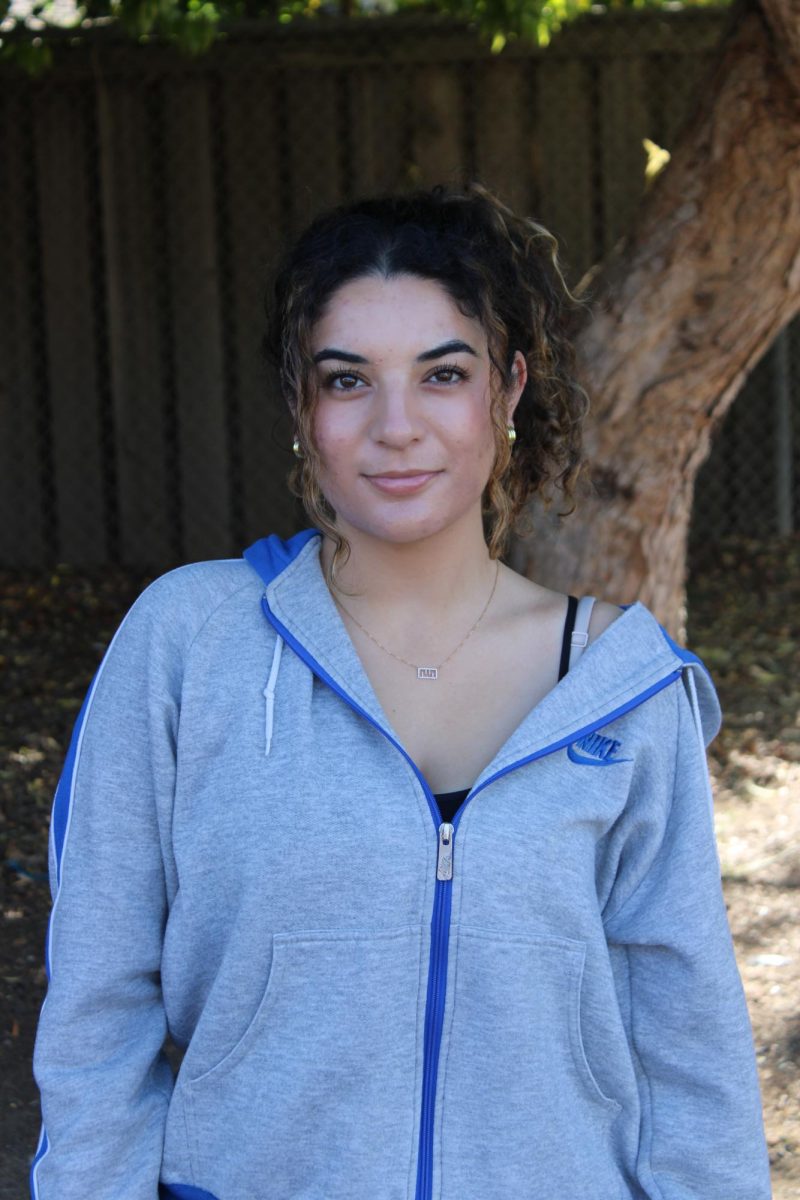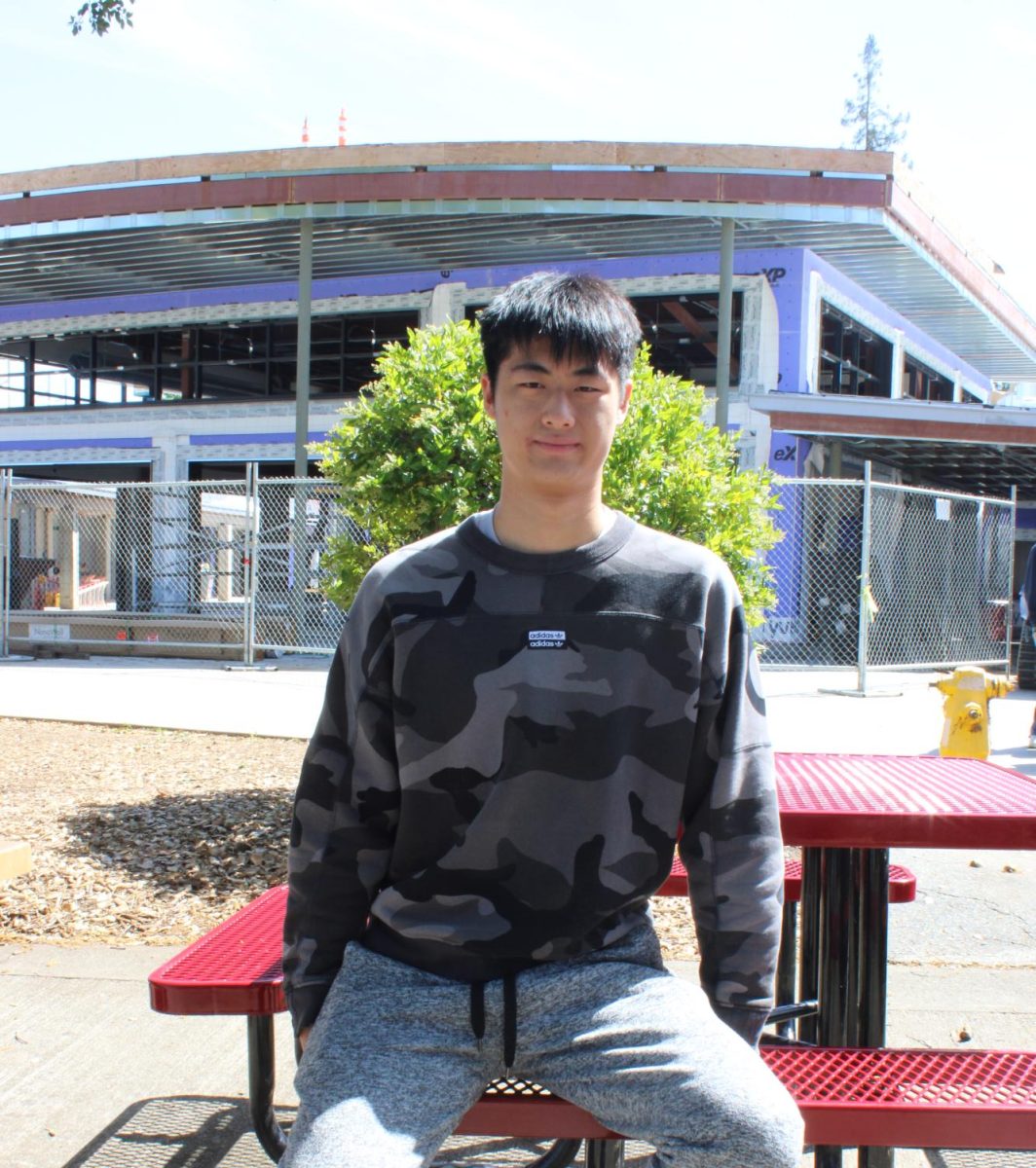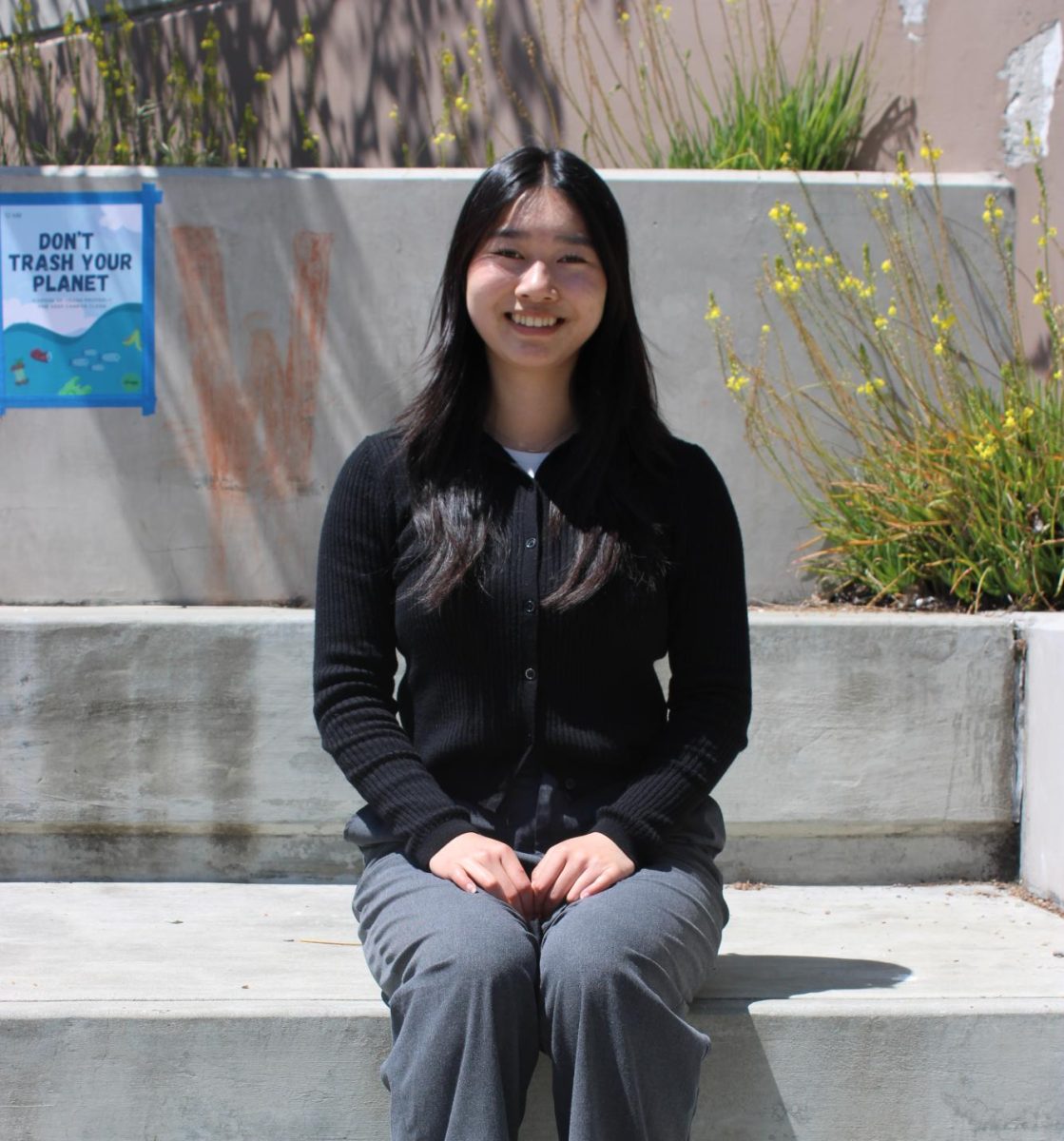The rock was soft. Or rather, what then third-grader Fiona Li touched weren’t rocks but anemones, their tentacles tucked in at low tide. Exploring tidepools for the first time at Pillar Point in Half Moon Bay, Li discovered an entire microsystem of of marine creatures.
“It’s special because the creatures have adapted to deal with the sun (during low tide) but also being fully submerged when it’s high tide,” she said. “It’s like sampling ocean life.”
Li’s fascination with tidepools fed a passion for marine biology, as well as organism-level branches of biology (such as birds and trees) and microbiology. These interests have since made their way into her gardening and cooking endeavors.
Tomatoes and sunflowers are staples in her garden, and she has even grown juicy spiky cucumbers that can’t be found in supermarkets. To optimize her produce, Li has used her knowledge of N-P-K — nitrogen, phosphorus and potassium — ratios in fertilizer.
Inside the kitchen, Li cooks the plants she gardens, using butternut squash in bread one year when she harvested too much. From biology, she knew that butternut squash comprised mostly water and some carbohydrates. From cooking, she knew about “tangzhong,” a mixture of boiling water and flour that pregelatinizes starch in the flour for a moist final product.
“So I was like, ‘OK, well, squash has starch like flour, and it’s mostly water,’” she said. “If I cut the steamed squash, and then I use that in place of tangzhong in bread or baked goods, that in theory should keep the bread similarly moist. And so I did that (and) it was really similar to milk bread.”
Li’s cooking and gardening adventures have developed in conjunction with her curiosity in biology in what she describes as a positive feedback loop. Though Li isn’t sure how her pursuit of biology will look in college and beyond, she hopes for exposure to new flavors of biology.
“Biology is the study of life and living things, and as a living thing, it’s just really cool to try to understand how we work,” she said.


